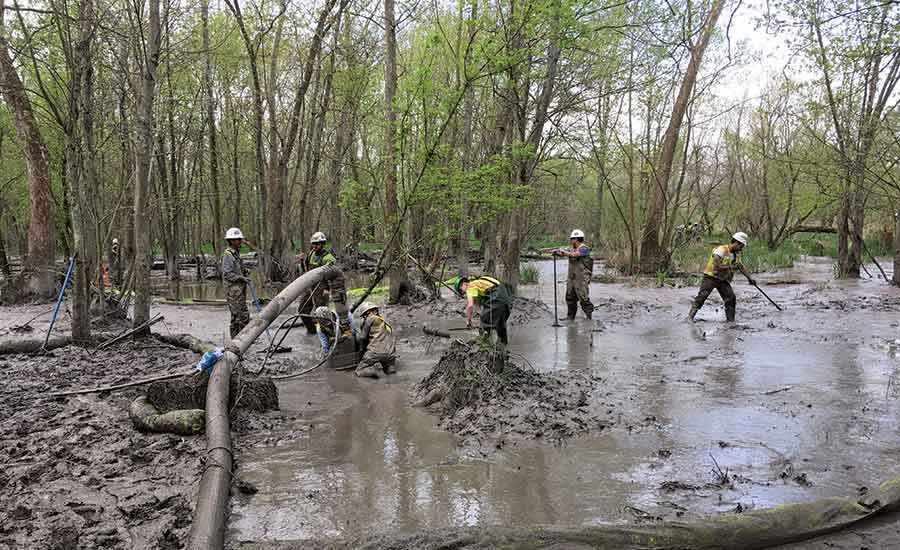Ohio Pipeline's Drilling Fluid Spill Befouls Wetlands

Ohio Pipeline Project’s Drilling Fluid Spill Befouls Wetlands
PHOTO COURTESY OHIO ENVIRONMENTAL PROTECTION AGENCYE
Work is underway to clean up the “inadvertent return” of an estimated 2 million gallons of bentonite-based drilling fluid into high-quality wetland that occurred during horizontal directional drilling under the Tuscarawas River in Stark County, Ohio, for Energy Transfer Partners L.P.’s Rover Pipeline. The release covered about 6.5 acres, coating wetland soils and vegetation with bentonite clay and bore-hole cuttings, says the Federal Energy Regulatory Commission. FERC has prohibited drilling where HDDs have not started to facilitate a review of efforts to locate potential releases. The commission also required the owner to obtain third-party contractor proposals to analyze all drilling activity at the HDD site. The 713-mile, $4.2-billion Rover Pipeline is designed to transport 3.25 billion cu ft of natural gas per day from the Marcellus and Utica shale beds to Michigan. Construction began around March 24; the “inadvertent return” was discovered April 13. The Ohio Environmental Protection Agency has reported a variety of other violations. “We continue to work through this situation with FERC and the Ohio EPA to resolve this issue in a manner that is satisfactory to everyone involved, and most importantly ensures the complete remediation of the areas,” says a project spokeswoman.


